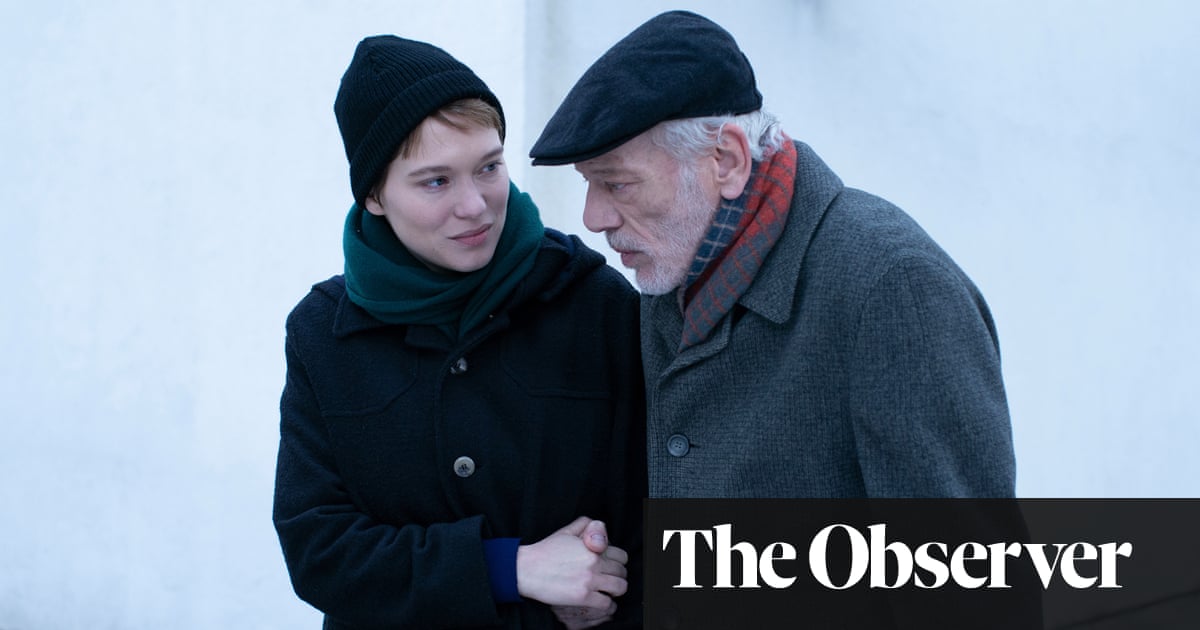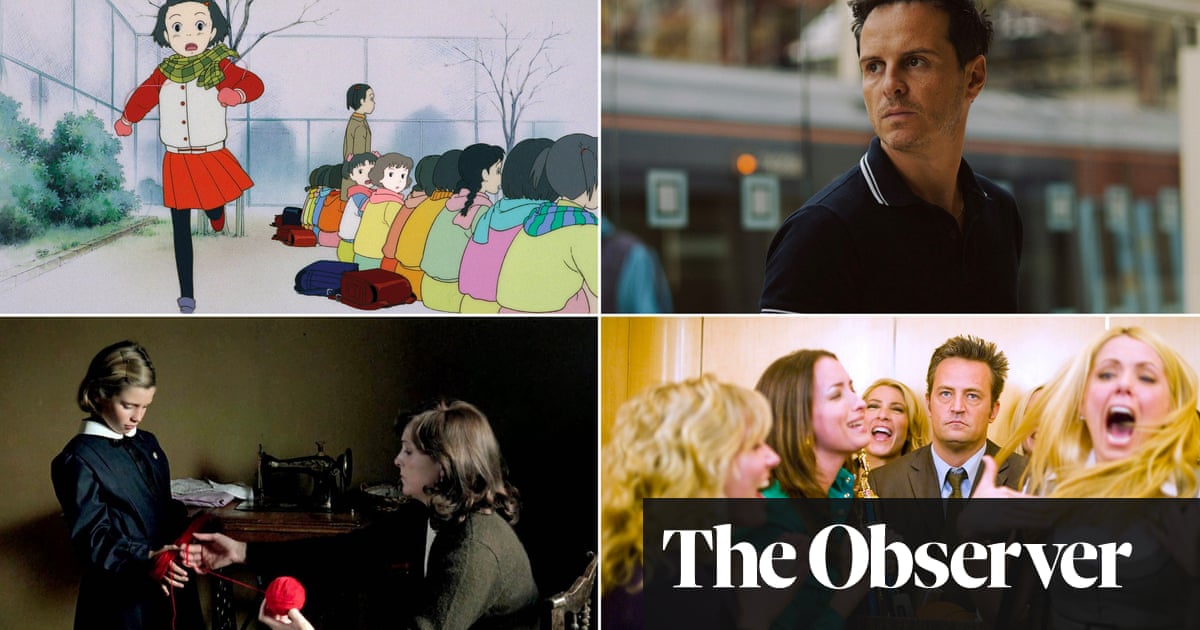
Ukraine’s national cinema is a storied and distinctive one, though not one that has traditionally received the exposure it deserves. That’s been shifting of late, with Ukrainian film-makers such as Sergei Loznitsa and Valentyn Vasyanovych finding a following on the international film festival circuit. On the streaming side of things, availability is pretty patchy even when it comes to some major titles – though a couple of useful online initiatives are seeking to put that right.
We’ll begin with probably the most famous vision of Ukraine on screen: Dziga Vertov’s landmark 1929 documentary Man With a Movie Camera (BFI Player), which landed in the top 10 of Sight and Sound magazine’s all-time greatest films poll a decade ago. Nearly a century after it was made, it remains a playful, modern-feeling work, observing everyday working life in the Ukrainian city of Odessa – with additional passages in Kyiv, Kharkiv and a hop over to Moscow – over the course of several years. Full of formal trickery and innovation, it’s a film alive with the possibilities of the new.
Less canonised Ukrainian titles from the 20th century are harder to legally source online. Amazon somewhat surprisingly turned up The Lost Letter (1970), produced by the region’s legendary Dovzhenko Film Studios. A Gogol-inspired cross-country musical, it’s both highly flavourful and an acquired taste. The free streaming service Plex has another Dovzhenko nugget from 1974, the second world war fighter-pilot romp Only Old Men Are Going to Battle, but otherwise pickings are slim. I thought I was on to something with the official YouTube channel of the Ukrainian state film agency, which appears to be richly stocked with local features, shorts and cartoons – though for any outsiders not fluent in Ukrainian or Russian, the absence of subtitles on any of the videos makes it suitable for curious, cursory browsing at best.
More fruitful is Takflix, a streaming service dedicated to bringing Ukrainian cinema to a global audience, founded by local film lovers and aiming to support the national film industry by returning 50% of VOD proceeds to participating film-makers. (A pop-up on the site’s welcome page, however, informs us that 50% is currently going to humanitarian organisations.) It’s an accessible site, allowing users to filter films by length, genre and even director gender, and while their library is mostly contemporary, a few vintage titles are available. I was rather taken with Yuri Ilyenko’s 1971 wartime saga The White Bird Marked With Black, which mixes heated Soviet-versus-nationalist politics, romantic melodrama and folkloric detail to heady effect.
Of the recent selections, Gamer packs a chilly punch: directed by Oleg Sentsov, the Ukrainian film-maker famously imprisoned in Russia on trumped-up terrorist charges, its study of a teenager pursuing a professional gaming career and facing an existential void works as a tacit cry for a nation’s stymied youth.
The great new-generation Ukrainian film of the past decade, however, is undoubtedly Myroslav Slaboshpytskyi’s astonishing debut The Tribe (2014; BFI Player), a study of bullying and criminality at a high school for deaf people – performed entirely in unsubtitled sign language. If that sounds daunting, the performances and dramatic stakes are so vivid you’ll find yourself wholly immersed.
More classically stately and solemnly moving is Nariman Aliev’s 2019 film Homeward (Curzon), in which a father and son embark on a burial mission from Kyiv to Crimea; a modern feminist perspective, meanwhile, emerges in the lively Julia Blue (2017; Amazon), in which director Roxy Toporowych tells a Kyiv romance through the prism of post-revolutionary PTSD.
The defining Ukrainian film-maker of the present, however, is the aforementioned Loznitsa, whose fearsomely prolific filmography moves freely between experimental narrative and deep-dive documentary. His extraordinary doc Maidan (2014; Dogwoof on Demand) is a visceral, in-the-moment account of 2013-14 civil unrest in Kyiv’s Maidan Square – though it was beaten to an Oscar nomination by Evgeny Afineevsky’s more conventionally polished but still rousing film on the same subject, Winter on Fire (2015; Netflix). But Loznitsa’s pitch-black 2018 war comedy Donbass (BFI Player) – finding despair and absurdity in the mid-2010s conflict between Ukraine and the Donetsk People’s Republic – proves he can be just as acute in fiction. One presumes a ferocious take on the current crisis will come.
Also new on streaming and DVD
West Side Story
(Disney)
Steven Spielberg’s remake of the beloved 1961 musical is buoyant and whirlingly well made, and benefits from an intelligent, socially conscious adaptation by Tony Kushner – but still can’t help feeling like a nostalgia exercise, in contrast to the original’s youthful modernity. It seems like a missed opportunity for a more radical update.
Blue Bayou
(Universal)
Writer-director-star Justin Chon’s immigration-themed melodrama is full to bursting with good intentions, and grounded by his own stirring performance as a Korean-American facing deportation despite having lived almost all his life in the US. He’s a more nuanced actor than he is a film-maker, however: such a potent story doesn’t need such blunt treatment.
Train Again
(Mubi)
Mubi doesn’t often give individual releases to short films, but Austrian avant garde director Peter Tscherkassky’s 20-minute head trip is special: a vertiginous assemblage of film clips honouring both the origins of cinema and the prominent role of locomotives in screen history, all layered, looped and woven together with kinetic, hypnotic imagination.












